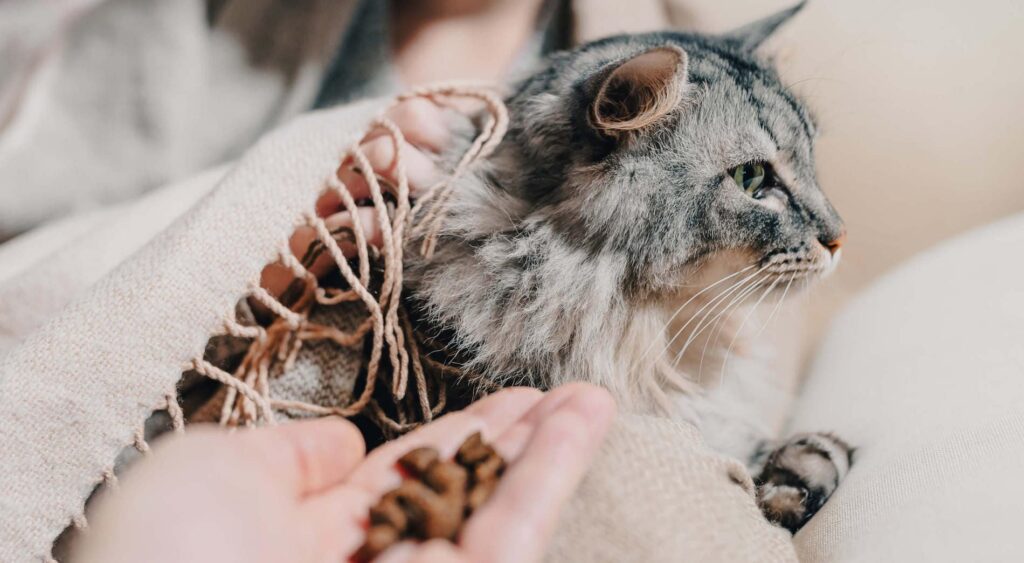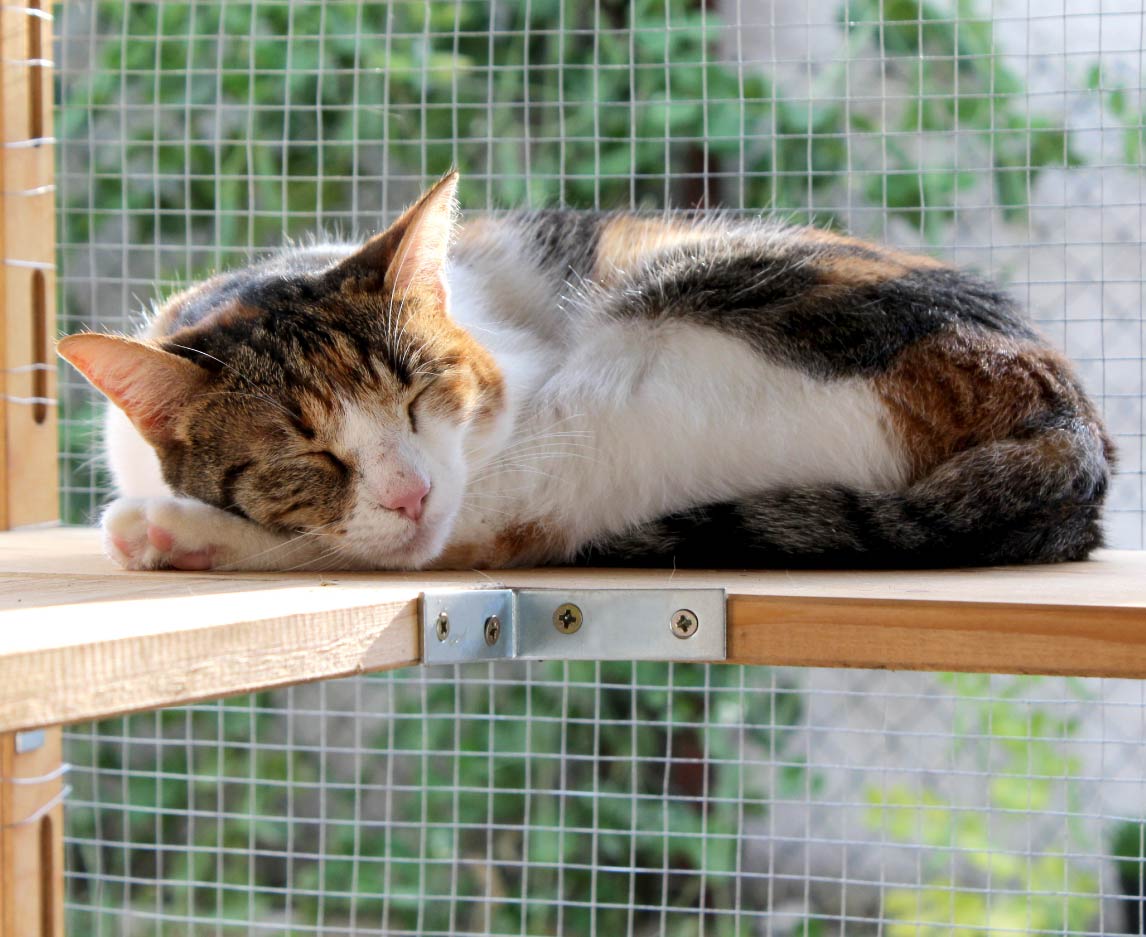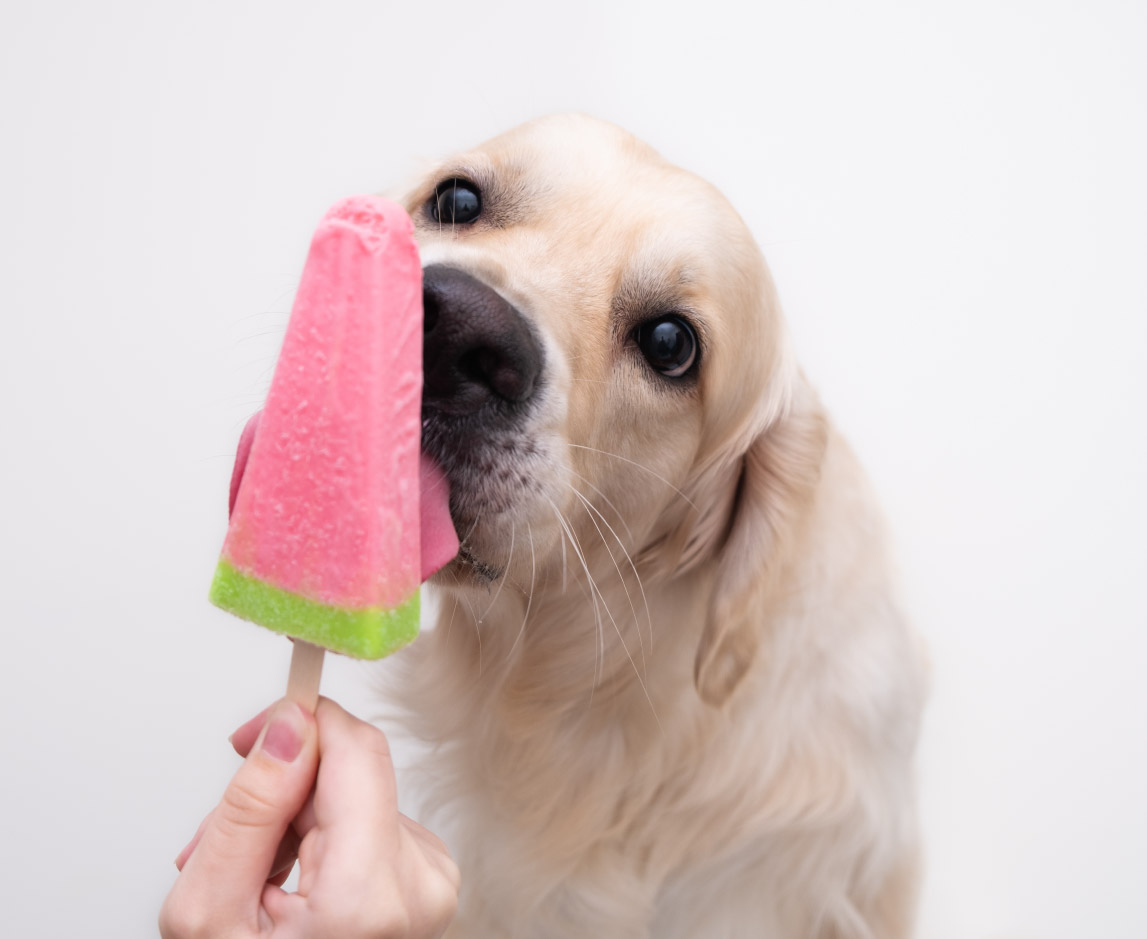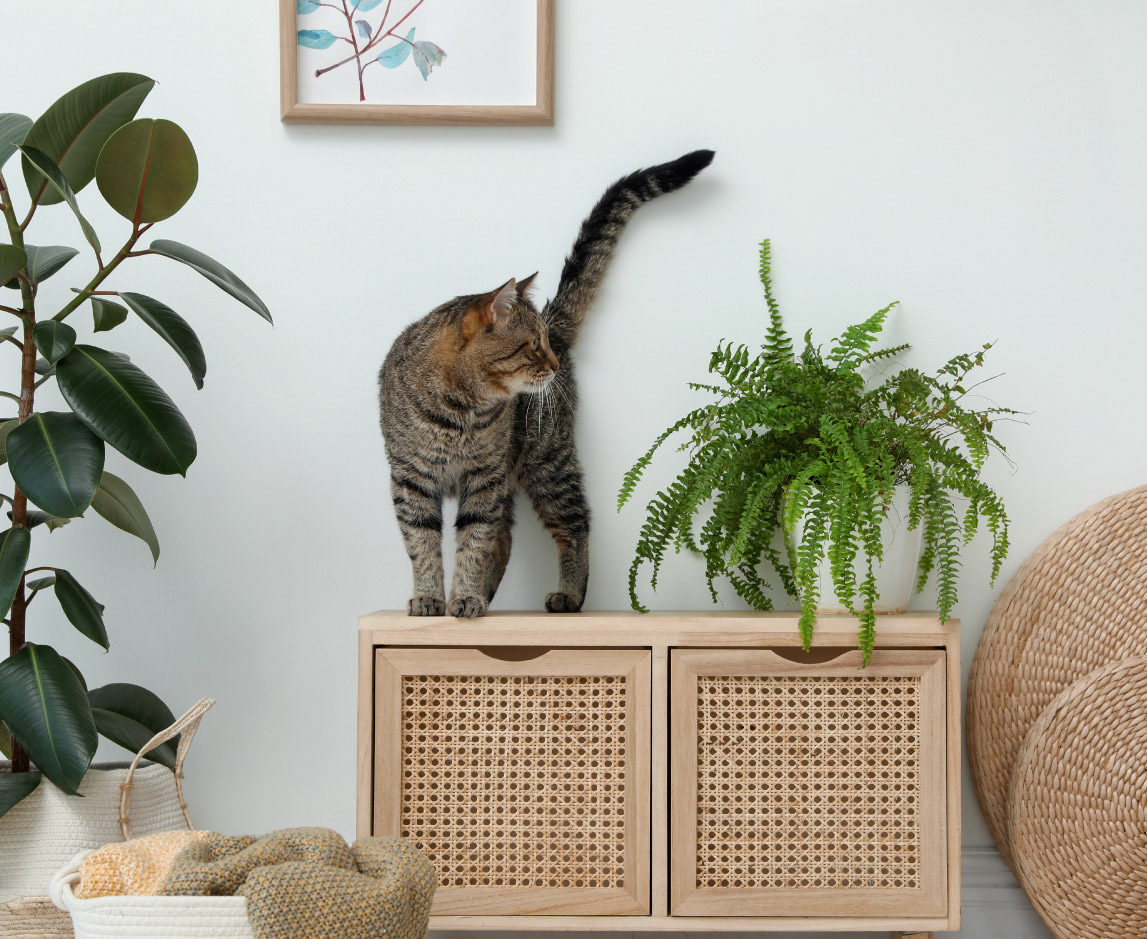Have you wondered why your older cat is losing weight? There are any number of reasons that might cause this to happen as our feline companions age, from diet to age-related illnesses. Regardless of the underlying issue, it’s important to identify what’s going on in order to provide appropriate care and keep your pet in tip-top health.
In this blog post, we’ll explain when to seek veterinary attention, symptoms to be aware of and how to effectively start supporting healthy weight gain.
7 Causes of Weight Loss in Older Cats
It’s not just health conditions that trigger weight loss in our silver felines but also behavioral changes. Here’s a look at some of the most common causes of weight loss in older cats.
- Normal Aging: As cats age, they may experience weight loss due to decreased metabolism and shifts in their digestive system. Changes in hormone levels and decreased activity are often major contributing factors.
- Cancer: The overactive cell growth and immune system activity brought on by many forms of cancer can lead to rapid weight loss. Because cancer cells decrease nutrient absorption, a cat might be losing weight despite a seemingly good appetite.
- Chronic Kidney Disease: Chronic kidney disease (CKD) causes a buildup of waste products that are intended to be filtered out of the body through the kidneys. The accumulation of those unwanted materials can make a cat feel ill and lethargic, contributing to weight loss.
- Hyperthyroidism: Cats eight years old and up often have issues with their thyroid — the small butterfly-shaped organ located in the throat — sending metabolism into overdrive. This results in weight loss despite a substantial increase in appetite.
- Diabetes: Along with increased thirst and urination, unexplained weight loss is a hallmark of feline diabetes. According to the ASPCA, cats can suffer from diabetes if they are unable to produce insulin or have an inadequate response to insulin.
- Sensory and/or behavior change: As cats age, their senses of taste and smell can dull, leading to disinterest in food. Combine that with reduced mobility from arthritis or age-related fatigue and feeding becomes less accessible. The combination of these factors can cause a noticeable drop in your cat’s weight.
- Dental Issues: Dental issues in cats, such as gum disease, toothache, sore throat, mouth infection or mouth ulcers, can result in weight loss strictly based on discomfort when trying to consume food. A drop in calorie intake will inevitably lead to weight loss, especially if it lasts for a long time.
Symptoms and Signs to be Aware of
Without the empirical support of a lower number on the scale, some telltale signs and behavioral symptoms of weight loss in senior felines include the following.
- Changes in body composition, especially decreased muscle mass, will make a cat’s bones increasingly visible through their coat.
- Hesitancy to eat and leaving meals unfinished can be telltale signs of dental issues or underlying health concerns.
- Decreased activity can be caused by illnesses such as hyperthyroidism, diabetes, kidney disease and others that impact energy levels and mobility.
- Increased thirst drive could be caused by imbalances of fluids and electrolytes, a potential sign of an underlying issue.
- Changes in behavior such as vocalizing at night show that a cat is uncomfortable, either physically or emotionally.
When to Seek Veterinary Attention
It is always best to involve a veterinarian when you are concerned about your pet’s well-being. When it comes to weight loss, additional symptoms like gastrointestinal discomfort and/or fur loss might indicate underlying health issues and persuade you to make an appointment for your pet. Don’t hesitate to rely on a professional for examination and any possible treatment plans that can ultimately improve your cat’s quality of life.
What to Feed an Older Cat That is Losing Weight
The most important thing about caring for a senior cat that is underweight or losing weight is to ensure that adequate nutrition is consumed. That means finding high-quality cat food to provide appropriate vitamins and nutrients for the cat’s life stage.
The American Association of Feline Practitioners (AAFP) considers cats older than 11 to be senior and cats 15 or older geriatric. At these ages, palatability becomes extremely important, making moisture-rich wet foods helpful to garner a cat’s interest and provide extra hydration.
Tips for Promoting Weight Gain in Older Cats
There are certain efforts you can make as a pet parent to limit unwanted weight loss or even put some needed extra pounds on your feline:
Try introducing wet food: Many cats benefit from the added moisture from wet diets and extra palatability. Wet food often has a more enticing taste and odor, which can encourage eating in sensory-fatigued senior cats.
Offer snacks or smaller, more frequent meals: Cats, especially in their later years, can find smaller meals easier to consume. To meet total energy needs, try offering more frequent feedings of smaller portions or nutrient-packed treats throughout the day.
Limit stress: Just as with humans, a feline’s circulatory and respiratory systems are forced to work harder when the body is under stress. As cats age, uncomfortable feelings of anxiety and stress can be triggered more easily. Counteract those feelings by providing a calm and stable environment.
Looking to address weight concerns in your senior cat? Explore our entire line of minimally processed animal nutrition offerings, including four new Pates formulated for seniors, or find an authorized RAWZ retailer.






